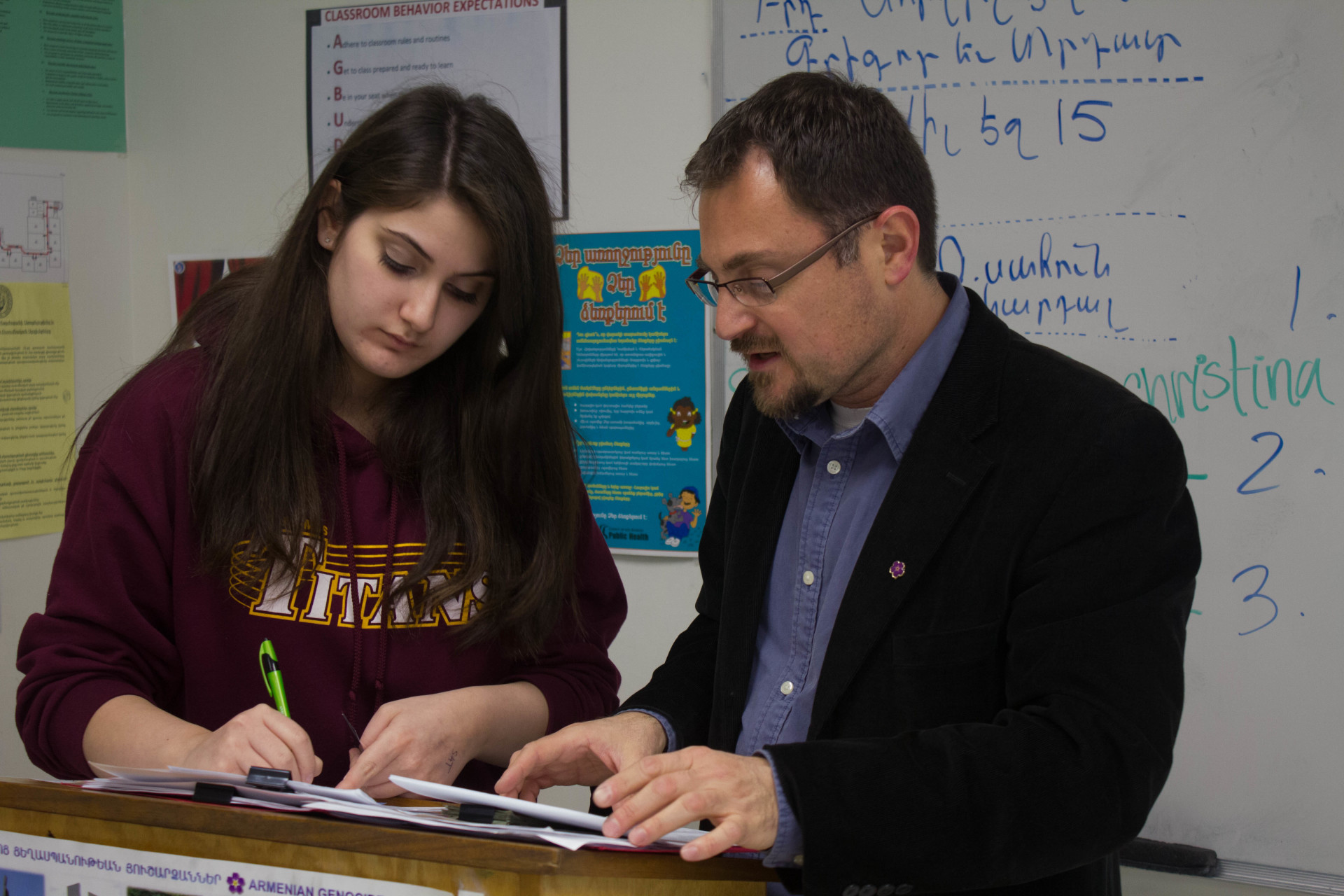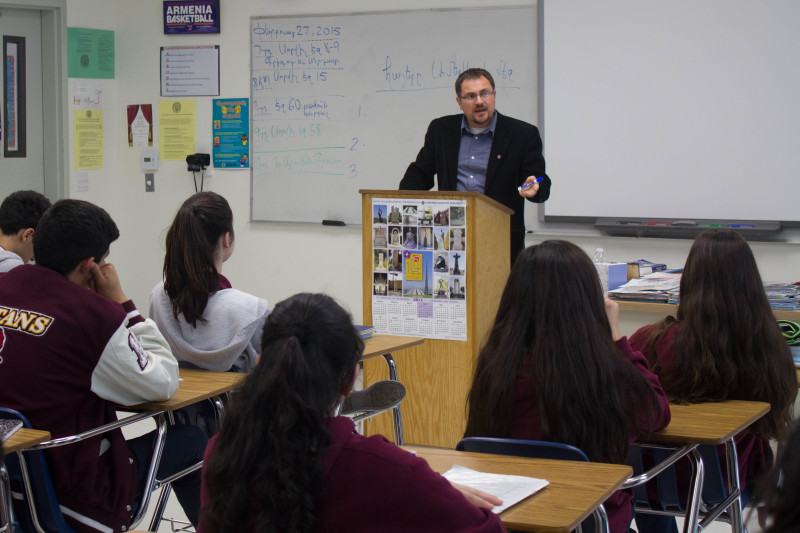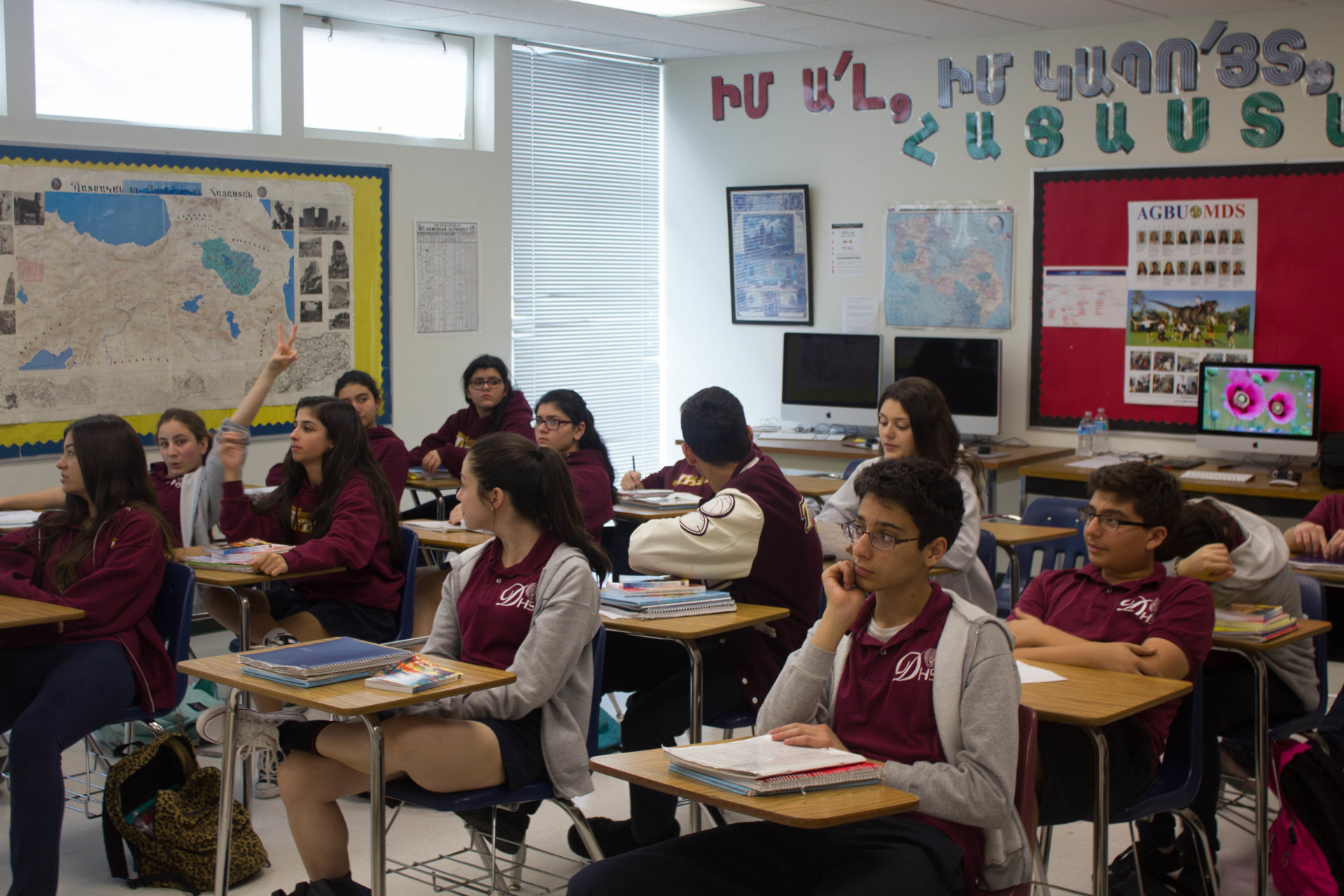This week we’re launching a new series called “Between Homelands.” We’ve teamed up with students from USC Annenberg’s School for Communication and Journalism. They're bringing us stories of people living in California who have come from afar, or who were born in the U.S. but feel like cultural foreigners.
April 24 marks the centennial of the massacre of nearly 1.5 million Armenians that caused thousands of others to flee what is now Turkey. Many refer to this as the Armenian genocide.
Today, Los Angeles is home to the largest population of Armenians in the U.S. While their communities continue to thrive, Western Armenian, the dialect they brought with them, is in severe danger.
Hratch Sepetjian teaches at AGBU Manoogian-Demirdjian School, a private Armenian school in Los Angeles. It works to promote and preserve Armenian language and culture.

The United Nations Educational, Scientific and Cultural Organization (UNESCO) has Western Armenian on its endangered languages list.

